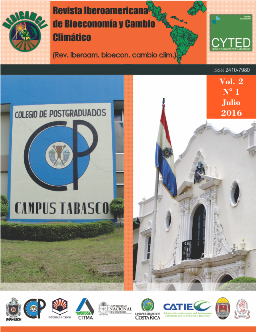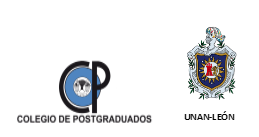Food security and sovereignty
DOI:
https://doi.org/10.5377/ribcc.v2i1.5702Keywords:
Food safety, Food Sovereignty, Globalization, Nutrition, LawAbstract
This paper focused on the review of the literature to know the main definitions of food security and sovereignty, establish their differences, and how globalization intervenes in the application of these concepts in the world.
It is concluded that food security and sovereignty constitutes a fundamental part for all sectors in developing countries, as in the case of Nicaragua. In education and rural development, food security and sovereignty is very important to evaluate its effects.
Globalization as a new form of domination, tries to impose on countries like ours what needs to be produced, and also how to do it to satisfy the demands and needs of the most powerful nations. They also impose what we must consume, forcing us to be consumers and importers of junk food.
Regrettably, the guidelines of a healthy diet are subject to the laws of the international market, and oblige us to consider the formulation of a Food Policy that equitably distributes the goods that we produce, that guarantees the right of our people to Food, which guarantees Food Security and above all, the Food Sovereignty of this country that we love. It is due to this fact that in our legislation there are already laws that treat the solution to this problem.
Downloads
4745
HTML (Español (España)) 0
Published
How to Cite
License
Copyright (c) 2016 Rev. iberoam. bioecon. cambio clim.

This work is licensed under a Creative Commons Attribution-NonCommercial-ShareAlike 4.0 International License.
Copyright © Rev. iberoam. bioecon. climate change (Graduate School and UNAN-León, School of Agricultural and Veterinary Sciences / Department of Agroecology / Center for Research in Bioeconomy and Climate Cahnge (CRByCC).







